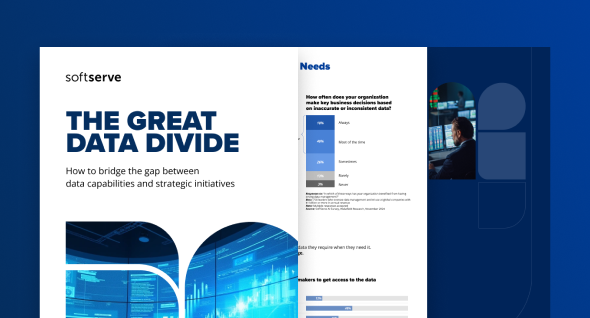
Most organizations are trying to do something smarter with their data. It was therefore surprising to discover how many corporate executives don’t understand the value of their data, nor how rarely it is used to improve the quality of decision-making. More importantly, many are struggling to define a clear path to resolve either.
We started by trying to better understand what companies are doing with their data, and how they are going about it. We asked Wakefield to survey 750 global organizations and found more fundamental problems. The research not only revealed a disconnect between the C-suite and their business unit leaders over their digital strengths, but also acknowledged they were often left punching in the dark due to poor data-supporting business decisions.
Data efforts compromised
One of the most common challenges which compromised efforts to improve data capabilities was not having a clear focus, or an end game in mind before starting.

In fact, the research showed 77% of those polled reported that no one in their organization had a comprehensive understanding of the data collected, or how to access it.
It also raised the question of how the data is being utilized.
Our experience also confirms that successful data strategies are those that prioritize use cases over data initiatives. Instead of creating expensive architectures with an uncertain purpose, organizations should begin by asking,
Unlocking value
Any data strategy that will deliver a lasting impact cannot therefore be first about building an ideal framework. It must focus on unlocking measurable business value, step by step, through practical prioritization and execution. Only then will results follow.
This means our work with companies often starts with helping them understand how to identify those business priorities, where better data can make a difference. We are then able to align potential data projects with real use cases that bring material benefits to the business.
So please download the report for a wider perspective on data challenges, then call us to arrange a conversation with our data experts to discover how a new approach can work for you.



